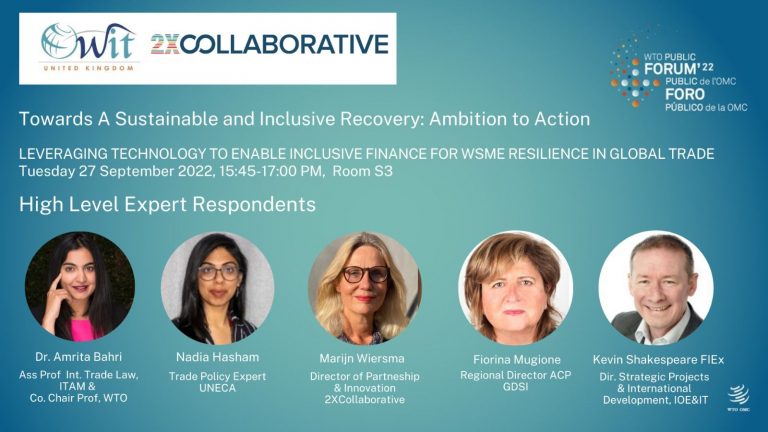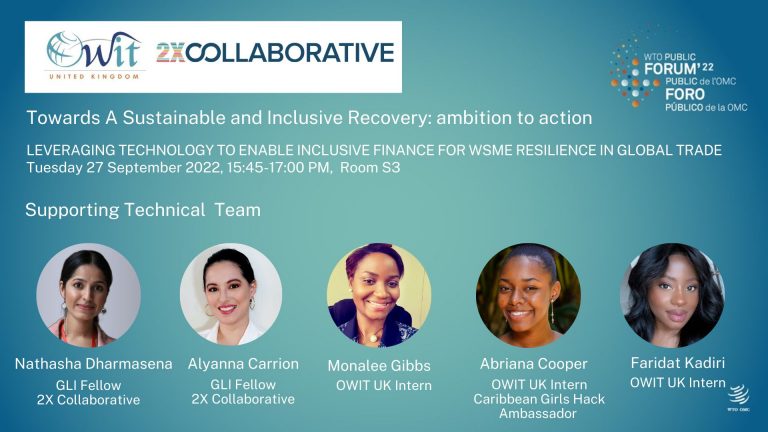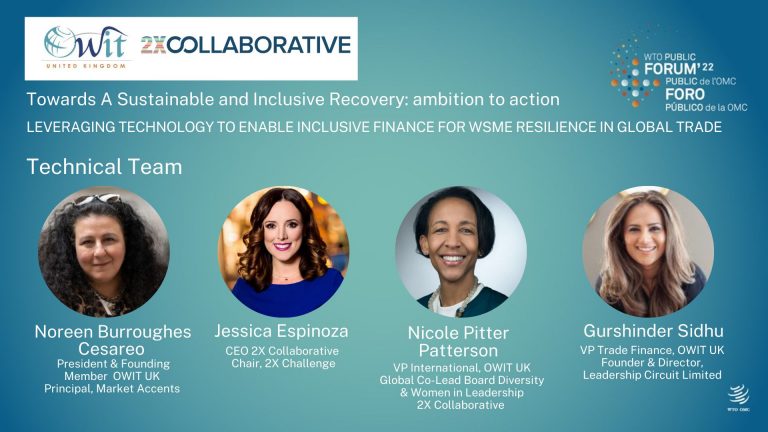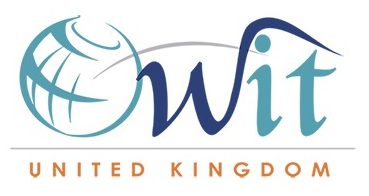WTO Public Forum 2023: Leveraging Technology to Enable Inclusive Finance for WSME Resilience in Global Trade
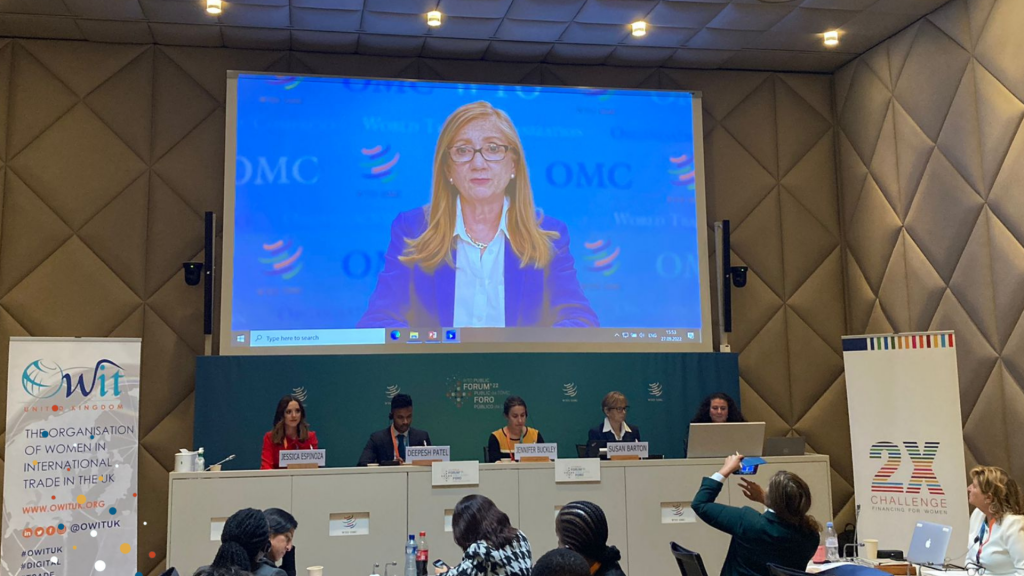
A Working Session at the World Trade Organisation Public Forum
Co-Hosts: Organization of Women in International Trade, United Kingdom Chapter (OWIT UK) and 2X Collaborative
Date: September 27th, 2022
Speakers
Anabel González, Deputy Director General, World Trade Organisation
Jessica Espinoza, CEO 2x Collaborative Europe• Inez Murray, CEO, Financial Alliance for Women • Jennifer Buckley, Founder and Managing Director SWEEF Capital, Singapore • Susan Barton, Head, Trade Strategy and Outreach, FCDO UK Department of Trade and Investment
Moderator:
Deepesh Patel, Editorial Director, Trade Finance UK, Trade Finance Global
Co-Hosts:
Noreen Burroughes Cesareo, President, Organisation of Women in International Trade (OWIT UK)
Jessica Espinoza, CEO 2x Collaborative Europe
Expert Respondents:
Dr. Amrita Bahri, Assistant Professor of International Trade Law and Co-Chair Professor at the WTO • Nadia Hasham, ECA Trade Policy Expert UNECA• Marijn Wiersma, Director of Partnerships and Innovations at 2XCollaborate • Fiorina Mugione, Regional Director ACP at GDSI • Kevin Shakespeare, Director, Strategic Projects and International Development at the UK Institute of Exports and International Trade.
Technical Team:
Noreen Burroughes Cesareo, President, Organisation of Women in International Trade (OWIT UK); Nicole Pitter Patterson, VP International Organisation of Women in International Trade (OWIT UK); Jessica Espinoza, CEO 2x Collaborative Europe; Marijn Wiersma, Director of Partnerships and Innovations at 2XCollaborate; Gurshinder Sidhu VP Trade Finance International Organisation of Women in International Trade (OWIT UK)
Context:
OWIT UK and 2X Collaborative hosted a working session with expert representatives from the G7 DFI members, UK Government, NGOs, and Intergovernmental organizations, as well as fintech experts in trade finance and global trade experts. They discussed ways to change the current financial ecosystem and mindset through technology, to transform MSME financing and increase women’s access to finances. The collaboration between private sector innovations in digital finance and the support of the public sector will help transform the current landscape to better account for gender lens financing and increase economic growth. Session outcomes suggest possible supply chain constraints, disruptions in global trade, and WSME resilience can be successfully addressed through gender lens investing using digital finance.
Data: New technologies like cloud computing and programming interfaces to big data analytics can transform MSME financing, empower and increase women’s access to finances. It is important to look beyond new technologies to build a new ecosystem.
This new ecosystem needs to have tailored approaches to improve innovative, inclusive, and efficient digital financial services. To create such an ecosystem, it is crucial to invest in digital identity systems, improving the accessibility and accuracy of data, and enhancing digital and financial literacy. A lack of data should also not be used as justification for a lack of action toward gender-focused change but women-owned businesses providing more data will be advantageous to them because it will increase their chances of accessing the finance system in the future.
Environment: There needs to be more women in the value chains because they are often isolated or lack access to capital that would allow them to grow and reach their economic goals. Possible solutions include catalyzing investment through hackathons and increasing networking possibilities.
FinTech: FinTech can be used as an enabler of shifting investment into women-owned businesses. Digital platforms can connect women to markets and capital.
Public-Private Partnerships: Cutting red tape and fostering transparency will make digital financial products more available and affordable. Ninety WTO members are currently negotiating fair global rules on digital trade that will facilitate remote transactions and strengthen trust and digital markets, while also reducing digital trade barriers. Invest For Trade (previously called aid4trade) is another tool that can be used to strengthen the capacity of women to trade and receive financials. Private and public sector corroboration is especially needed to bring capital into South East Asia to decrease perceived market risk. The public sector needs to aid in educating the private sector to help diversify investors’ portfolios into emerging markets
Education: Promoting financial literacy is key. As much as changing the ecosystem is necessary, so is changing the mindset around women entrepreneurs in order to direct capital. Educating entrepreneurs also involves making sure they can access the data systems they will need. This re-education is a necessary step to help transform institutions not designed to fit or consider gender.
Outcomes: Gender lens investing using digital finance can be successfully implemented to address issues like disruptions in global trade caused by possible supply chain constraints and MSME resilience. The success of these strategies will be aided by the creation of new digital and communal environments that are tailored for women.
